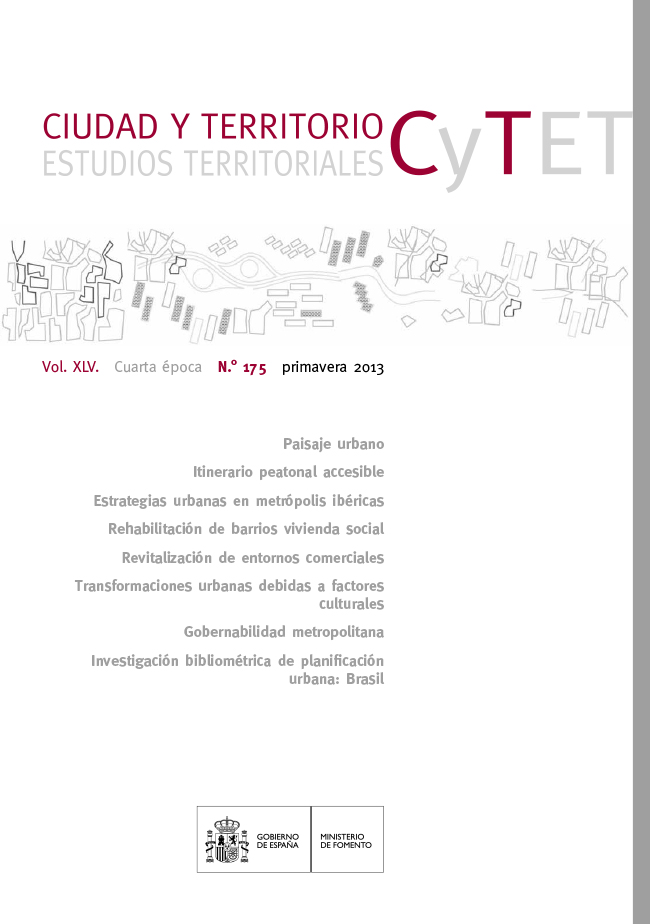Refurbishment of Social Housing Neighborhoods: The ARI of La Rondilla en Valladolid
Keywords:
Rehabilitación urbana, vivienda social, eficiencia energética, urbanismo, Área de Rehabilitación Integral, ValladolidAbstract
The Committee of the Regions, in its report “The role of urban regeneration in the future of urban
development in Europe” makes clear that the new model of sustainable city should be based on an
integrated and innovative approach to urban revitalization, consistent with the Leipzig Charter,
taking into account the environmental, economic and social issues. One might raise the urban
rehabilitation, then, as a strategic policy of the city. Strategic policy against environmental problems,
to promote a more equal, cohesive and attractive city, to stimulate the economy, etc.
The study of the case in the article focuses on the rehabilitation of a housing district, similar to
those built by public initiative between 50 and 70 in many other Spanish cities and in the expectations
and results obtained in different analysis fields: environmental, social and economic development.
Especially focuses in the energy and habitability, main objectives of the intervention. Analyzes the
current shortcomings, but also the enormous potential of this type of neighborhoods and defends
an enhancement of them as generalized urban strategy for the future.
Downloads
Downloads
Published
How to Cite
Issue
Section
License
Copyright (c) 2013 Alberto Meiss, M. Rosario Del Caz Enjuto, Antonio Álvaro Tordesillas

This work is licensed under a Creative Commons Attribution-NonCommercial-NoDerivatives 4.0 International License.
Considering the provisions of the current legislation on Intellectual Property, and in accordance with them, all authors publishing in CyTET give -in a non-exclusive way and without time limit- to the Ministry of Transport, Mobility and Urban Agenda the rights to disseminate, reproduce, communicate and distribute in any current or future format, on paper or electronic, the original or derived version of their work under a Creative Commons Attribution-NonCommercial-NoDerivative 4.0 license International (CC BY-NC-ND 4.0), as well as to include or assign to third parties the inclusion of its content in national and international indexes, repositories and databases, with reference and recognition in any case of its authorship.
In addition, when sending the work, the author(s) declares that it is an original work in which the sources that have been used are recognized, committing to respect the scientific evidence, to no longer modify the original data and to verify or refute its hypothesis. Author(s) also declare that the essential content of the work has not been previously published nor will it be published in any other publication while it is under evaluation by CyTET; and that it has not been simultaneously sent to another journal.
Authors must sign a Transfer of Rights Form, which will be sent to them from the CyTET Secretariat once the article is accepted for publication.
With the aim of promoting the dissemination of knowledge, CyTET joins the Open Journal Access (OA) movement and delivers all of its content to various national and international indexes, repositories and databases under this protocol; therefore, the submission of a work to be published in the journal presupposes the explicit acceptance by the author of this distribution method.
Authors are encouraged to reproduce and host their work published in CyTET in institutional repositories, web pages, etc. with the intention of contributing to the improvement of the transfer of knowledge and the citation of said works.








 Enlace a CyTET en Linkedin
Enlace a CyTET en Linkedin